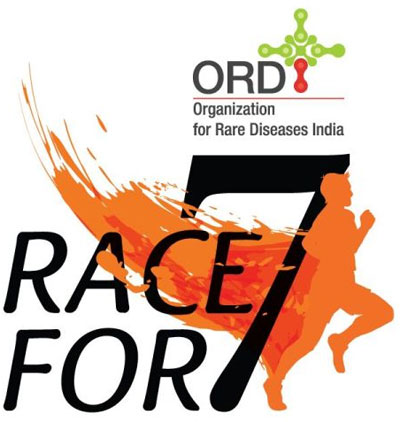 In 2009, the Hindi movie Paa was released to wide acclaim in India.
In 2009, the Hindi movie Paa was released to wide acclaim in India.
Starring Amitabh Bachchan, Abhishek Bachchan and Vidya Balan, the film, which focused on a father-son relationship, told the poignant story of a child suffering from a genetic condition known as Progeria which causes premature ageing.
In 2010, Shah Rukh Khan in the movie My Name is Khan played the role of a person suffering from Asperger Syndrome, an autism disorder that causes difficulty in communication and social interaction.
Both Progeria and Asperger Syndrome are conditions categorised as rare diseases which are chronically debilitating or life threatening diseases that are very complex, affect less than 0.1 per cent of the population and for most of which there is no known cure.
Over 70 million Indians are believed to suffer from rare diseases. There are about 7,000 to 8,000 different rare diseases that affect our population today, some of which are Pompe disease, Hirschsprung disease, Gaucher?s disease, Cystic Fibrosis, Hemangiomas, and certain forms of muscular dystrophies. With limited or no access to proper diagnosis, medical treatment or cure, mortality rate among patients suffering from rare diseases is high.
The quest for better treatment and cure and to provide a better quality of life for patients the world over is what drives and motivates clinical research professionals,says Suneela Thatte,President,Indian Society for Clinical Research.
We cannot ignore the high incidence of rare diseases in India and the needs of such patients. The rarity of their medical condition makes medical research even more challenging. We need a more
https://healthsavy.com/product/viagra/
conducive environment for the conduct of clinical research in the country so that we can provide a more meaningful and fulfilling life for such patients and their caregivers. The opportunity to participate in an ongoing or upcoming clinical trial in some cases becomes almost crucial to the survival of patients suffering from rare diseases.
February 28 is World Rare Disease day which is commemorated to raise awareness for rare diseases and improve access to treatments and medical representation for individuals with rare and genetic diseases and their families.
The 2014 theme of Care draws attention to the many different facets of rare disease care, which taken collectively, represent a universal need for patients and their families around the world.
The whole medical education and healthcare system and government healthcare policies are developed around common diseases such as diabetes, cardiovascular diseases and cancer which has resulted in a dearth of resources and information on rare diseases, said Mrs Sangeeta Barde,Founder Member of Organisation for Rare Diseases India.
There is limited availability of diagnostics, treatment and devices. Given that the total number of orphan drugs available worldwide is less than 500 (out of a total of 7000-8000 diseases), about 6500-7500 diseases have no treatment or devices for support. Even where available, an orphan drug does not always cure a rare disease but will probably alleviate the pain or delay death which is why we need more research and investment going into diagnosis, treatment and the cure of rare diseases,”added Mrs Barde.
https://www.healthydunia.com/article/2422/31/why_rare_diseases_need_clinical_research.html
 In 2009, the Hindi movie Paa was released to wide acclaim in India.
In 2009, the Hindi movie Paa was released to wide acclaim in India.


